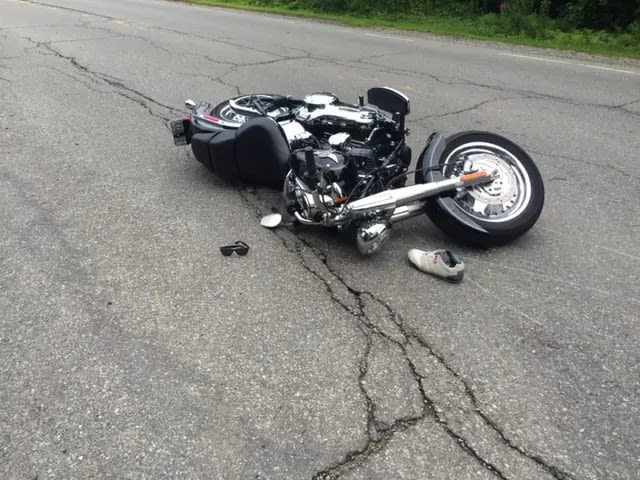
Wisconsin Motorcycle Personal Injury Law: Your Complete Guide for 2025
Motorcyclists in Wisconsin face serious risks on the road—and when accidents happen, the injuries can be catastrophic. Knowing your rights under Wisconsin motorcycle personal injury law is essential if you've been injured in a crash. This comprehensive guide explains the legal process, your right to compensation, insurance rules, and what to expect when filing a motorcycle accident injury claim in Wisconsin.
Why Motorcycle Accidents in Wisconsin Are So Dangerous
Motorcycle crashes in Wisconsin are disproportionately severe compared to car accidents. According to recent data from the Wisconsin Department of Transportation, hundreds of motorcyclists are seriously injured or killed each year.
Common Causes of Motorcycle Accidents in Wisconsin:
Distracted or inattentive drivers
Failure to yield the right of way
Speeding or reckless driving
Driving under the influence (DUI/OWI)
Poor road maintenance or weather conditions
Understanding the cause of your accident helps determine legal liability and is key to a successful motorcycle injury claim.
Your Legal Rights After a Motorcycle Accident in Wisconsin
If you've been injured in a motorcycle accident due to another person’s negligence, you have the right to pursue personal injury compensation in Wisconsin.
To win a motorcycle injury lawsuit, you must prove:
Duty of care – The other driver had a legal obligation to drive safely.
Breach of duty – They acted negligently or carelessly.
Causation – Their actions caused the motorcycle accident.
Damages – You suffered injuries, financial loss, or other harm.
Types of Compensation You Can Recover:
Medical expenses (current and future)
Lost income and diminished earning ability
Pain and suffering
Emotional trauma
Motorcycle repair or replacement
Working with a Wisconsin motorcycle accident attorney can help ensure all potential damages are accounted for in your claim.
Wisconsin’s Comparative Negligence Law
Wisconsin uses a modified comparative negligence system (Wis. Stat. § 895.045). This means you can still recover damages even if you were partly at fault—as long as you were 50% or less responsible.
Example:
If your total damages equal $100,000 but you’re found 25% at fault, you can still recover $75,000.
If you’re found more than 50% at fault, you cannot recover any compensation. This makes fault determination a critical element of any motorcycle personal injury case in Wisconsin.
Wisconsin Motorcycle Helmet Laws and Injury Claims
Under Wisconsin law:
Helmets are required for riders and passengers under 18 or those operating on an instruction permit.
Helmets are not required for licensed riders over 18.
While legal, riding without a helmet can still affect your motorcycle accident injury claim. Insurance adjusters may argue that failing to wear a helmet worsened your injuries, potentially reducing your compensation.
However, Wisconsin courts usually focus on fault for the accident, not whether a helmet was worn—especially in non-head injury cases.
Insurance Requirements for Wisconsin Motorcyclists
Wisconsin requires all motorcycle owners to carry minimum liability insurance:
$25,000 for bodily injury or death (1 person)
$50,000 for bodily injury or death (2+ people)
$10,000 for property damage
Uninsured Motorist (UM) Coverage:
Required in Wisconsin
Protects you if the at-fault driver has no insurance
Underinsured Motorist (UIM) Coverage:
Optional, but highly recommended
Protects you when the at-fault driver’s coverage is not enough
Because motorcycle injuries are often severe, it’s wise to carry higher insurance limits than the minimum required by law.
Statute of Limitations for Motorcycle Accident Claims
Under Wisconsin law (Wis. Stat. § 893.54), the statute of limitations for personal injury lawsuits is:
3 years from the date of the accident for personal injury
2 years from the date of death in wrongful death cases
Failing to file within this time period can permanently bar your claim, so it’s critical to act quickly and consult a motorcycle accident attorney in Wisconsin.
Legal Process for Filing a Motorcycle Injury Claim in Wisconsin
Here’s what typically happens after a motorcycle accident:
Seek medical attention immediately
Report the crash to police and your insurance company
Document everything – injuries, property damage, witness info
File an insurance claim
If the insurance company denies or undervalues your claim, file a lawsuit
What an D.M.R. Law Offices Can Do:
Investigate liability
Gather evidence and expert testimony
Negotiate with insurers
Represent you in court, if needed
Most motorcycle accident injury claims in Wisconsin settle before trial, but strong legal representation helps secure maximum compensation.
Combatting Bias Against Motorcyclists
Insurance companies and jurors may hold unfair assumptions that motorcyclists are inherently reckless. This bias can impact how your injury claim is evaluated.
To challenge this, your attorney may present:
Evidence of safe riding (training, gear, proper licensure)
Eyewitness accounts
Accident reconstruction
Medical expert reports
Working with a Wisconsin personal injury lawyer experienced in motorcycle cases is essential to overcoming these challenges.
Final Thoughts: Protecting Your Rights as a Wisconsin Motorcyclist
Motorcycle accidents can result in life-altering injuries and financial hardship. Wisconsin law provides strong protections for injured riders, but navigating the legal system requires knowledge and assertive representation.
Key Takeaways:
File your injury claim within 3 years of the accident
Comparative negligence can reduce your recovery if you’re partly at fault
Always carry adequate insurance coverage
Consult an experienced Wisconsin motorcycle accident lawyer
Don’t leave your recovery to chance. If you or a loved one has been hurt in a motorcycle crash, contact D.M.R. Law Offices today at 414-455-3629 to help you protect your rights and secure the compensation you deserve.
